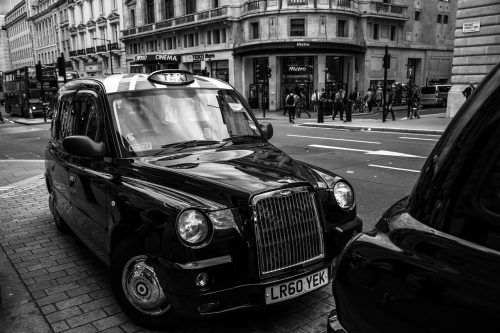Uber wins court case against Liverpool taxi firms over VAT charges

Taxi firms outside London could now be forced to raise their prices by a fifth, after Uber brought a claim in the high court meaning passengers must pay VAT on journeys.
The decision follows lawsuit launched by ride sharing app Uber and involving Sefton Council, and means the entire private hire industry could now be forced to add the charge to their fares for the first time.
The case in the High Court began hearing submissions at the end of 2022, and after a long delay, the decision was handed down by Mrs Justice Foster DBE on Friday afternoon.
At the heart of the decision was whether private taxi operators outside of London must follow Uber, and change their operating terms and conditions with passengers. This would mean the operator is providing the taxi service (as the principal not as an agent), so making them responsible for VAT.
Whilst private drivers working for these operators are generally under the UK VAT registration threshold of £85,000, and so do not charge any VAT, operators will be over the threshold.
The judge said “I have come to the clear conclusion that Uber’s suggested construction of the 1976 Act is correct. Accordingly, the question posed is to be answered “yes“.
An Uber spokesperson said: “Today’s judgment resolves a major inconsistency in the way that rules have been applied for private hire operators across England and Wales. But whilst it clarifies many key points, there remain questions on VAT and what passengers should pay.”
In a response to a parliamentary question, minister Lucy Frazer confirmed last week that HMRC are monitoring the Sefton case.
Uber last year has provisioned £615m in tax to UK authorities covering back uncollected VAT.
Layla Barke-Jones, a Partner in the Dispute Resolution team at the law firm Aaron & Partners, is acting on behalf of a group of Liverpool-based taxi firms, including Delta Taxis.
She said: “Without a doubt, the case has the potential to cause significantly increased costs that will hit passengers everywhere at the time of a cost of living crisis.
“Delta had hoped to protect passengers from such an impact, and will now call on Government to make private hire taxi journeys zero rated for tax purposes, in line with other forms of transport like buses and trains, to prevent this impact on some of the most vulnerable in society for whom private hire taxis can be the only form of transport available to them.”
Ms Barke-Jones said the outcome had been “heavily influenced” by a previous case relating to Private Hire Vehicles operating in London, which Uber was also involved in.
She said: “We are disappointed at the outcome and are taking time to consider and reflect upon the judgment. We respect the judge’s findings but are considering the impact with our client including whether to appeal.”
The ride hailing app had argued in the past that it was exempt from paying VAT with its drivers classified as self-employed. A landmark court ruling later clarified its drivers were indeed classed as ‘workers’.
With Uber’s revenue massively exceeding the VAT threshold, the company started to charge passengers an additional 20% to cover VAT. Uber wanted UK private hire and taxi firms to do the same, and how now been successful in its legal bid which may force them to do so.
Ms Barke-Jones added: “It is important to remember that this case was not about Delta’s tax liability but the potential for HMRC to require Delta to collect vat for HMRC.
“VAT is charged to the passengers and passed to the government. Delta’s stance in this case has been to try to protect the passengers. Given the potential for such large fare increases this now requires urgent government action to prevent VAT from being charged on private hire fares.”








